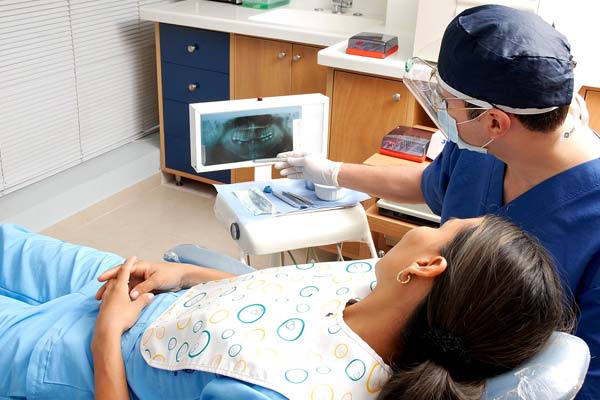What IGCSE Subjects Are Required for Dentistry? A Comprehensive Guide
To become a dentist, one must have a strong foundation in science and mathematics. This includes a solid background in biology, chemistry, and physics.
The IGCSE is crucial for students aspiring to become dentists, shaping their foundation for successful future studies. Therefore, considering IGCSE subject choices is essential for those pursuing dentistry careers.
While there is no set list of IGCSE subjects that are required for dentistry, there are certain subjects that are highly recommended.
These include biology, chemistry, mathematics, and physics. These subjects provide students with the necessary knowledge and skills to succeed in their future studies and dentistry careers.
Key Subjects for Dentistry
To pursue a career in dentistry, certain vital subjects are required at various levels of education. These subjects are essential for building a solid foundation in the field of dentistry and for gaining admission into dental schools.
At the IGCSE level, most universities and training colleges are looking for good grades that include the subjects required for dentistry. These subjects typically include English, Mathematics, and Science. It is important to note that some universities may require specific grades in these subjects.
For A-levels, the typical requirement is three As or equivalent. This includes at least one, often two, lab-based science subjects like Chemistry or Biology.
Many dental schools view Physics and Mathematics as complementary subjects. It is important to note that gateway courses for dentistry may offer lower entry requirements for those that meet the criteria.
For those pursuing a BDS in Dentistry, the entry requirements may vary. For first-year entry, 37 points are required overall, with at least 766 at higher levels.
Essential disciplines encompass Chemistry and Biology, with an added higher-level subject. Should Mathematics and English Language not be within the Diploma, GCSE or IGCSE scores of B (6) or above are acceptable.
Additional Subjects of Interest
While the primary focus for dentistry is on science subjects, some other subjects may also be of interest to those pursuing a career in dentistry. Here are a few additional subjects that may be useful for students interested in dentistry:
🌟 Hey Students! 🚀 Ready for the ultimate experience? Join us on Studentsinside.com's Facebook, YouTube, WhatsApp, and LinkedIn. Click now for tips, fun, and success vibes! 🌈✨ #StudentLife #JoinUs
Business Studies
Business Studies can be helpful for dentists who want to start their practice or work in a management role. It can provide marketing, finance, and human resources knowledge and skills.
Geography
Geography can be helpful for dentists who want to work in rural or remote areas. It can provide knowledge of the local environment, culture, and geography, which can aid in understanding the community’s needs.
Latin
Latin can be useful for students interested in the history of dentistry. Many dental terms are derived from Latin; understanding the language can help you comprehend and memorize technical terms.
Drama
Drama can benefit dentists who want to improve their communication and interpersonal skills. It can help with public speaking, empathy, and understanding of body language.
French
French can be useful for dentists working in francophone countries or communities. It can aid in communication with patients and colleagues who speak French as their first language.
History
History can be helpful for dentists who want to learn about the evolution of dentistry and how it has developed over time. It can provide insight into the social, cultural, and scientific factors influencing dental practices.
Physical Education
Physical education can be helpful for dentists who want to promote healthy lifestyles and habits to their patients. It can provide exercise, nutrition, and injury prevention knowledge and skills.
Religious Studies
Religious Studies can be helpful for dentists who want to understand their patient’s cultural and religious practices. It can aid in providing culturally sensitive care and avoiding misunderstandings.
Sociology
Sociology aids dentists in grasping social and cultural forces impacting health and healthcare, offering insights into inequality, health determinants, and healthcare systems.
Understanding the Field of Dentistry
Dental schools provide education and training for individuals who want to become dentists. These schools offer courses in anatomy, physiology, and other related subjects to help students understand the human body and how it relates to oral health.
Different types of dentists include general dentists, pediatric dentists, and orthodontists. General dentists provide many services, such as cleanings, fillings, and root canals. Pediatric dentists specialize in treating children, while orthodontists focus on correcting misaligned teeth and jaws.
To become a dentist, one must complete a dental degree program and pass a licensing exam. The specific requirements for dental school admission vary depending on the school, but most schools require applicants to have a solid academic background in science and math.
In terms of IGCSE subjects, most universities, and training colleges are looking for good grades, including the subjects required for dentistry, such as English, Math, and Science.
It is also recommended to take biology and chemistry as they are directly related to dentistry and will provide a strong foundation for further studies.
University Entry Requirements
To get into a dentistry program in the UK, students must meet specific entry requirements from universities.
These requirements vary between institutions, but most universities require students to have a minimum of AAA grades at A-level, including Chemistry and Biology/Human Biology.
In addition to A-level grades, most universities require students to have achieved a grade of 7 (A) or above in GCSE Biology, Chemistry, English Language, and Mathematics. Some universities may require further AS or A-level requirements if the degree contains more biology and chemistry.
For graduate applicants, a 2.1 in any subject completed in the natural length intended for that degree is required. Healthcare professionals with a degree can also apply for the Graduate Entry Dentistry course, designed for graduates with honors degrees in science subjects.
In addition to academic criteria, students need to complete the University Clinical Aptitude Test (UCAT), previously known as the UK Clinical Aptitude Test (UKCAT).
This multiple-choice assessment includes questions on verbal reasoning, quantitative reasoning, abstract reasoning, decision-making, and situational judgment.
Some universities may also offer contextual admissions or widening participation schemes, which consider a student’s circumstances, such as their socio-economic background, educational history, or personal challenges.
These schemes can provide opportunities for students who may still need to meet the standard entry requirements but have demonstrated potential and commitment to studying dentistry.
Skills and Qualities for a Dentist
To become a dentist, one must have a combination of skills and qualities essential to the profession. Here are some of the critical skills and qualities that a dentist should possess:
Interpersonal Skills
Dentists must have excellent interpersonal skills to build good patient and staff relationships. They must have the ability to communicate effectively, listen actively, and show empathy toward their patients. Dentists must also work well with their team members, including dental assistants, hygienists, and administrative staff.
Service-Oriented
Dentists must be service-oriented and committed to providing high-quality care to their patients. They must be passionate about helping people and genuinely interested in oral health. Dentists must have a solid commitment to their profession and be willing to continuously learn and improve their skills.
Technical Skills
Dentists must have strong technical skills to diagnose and treat dental problems. They must deeply understand dental anatomy, physiology, and pathology. Dentists must also be skilled in using various dental instruments and equipment, such as drills, probes, and X-ray machines.
Attention to Detail
Dentists need sharp attention to detail, spotting even the tiniest dental problems. They analyze X-rays, diagnose issues, and create customized treatment plans.
Problem-Solving Skills
Dentists must have strong problem-solving skills to address complex dental issues. They must be able to think critically, analyze data, and make informed decisions about the best course of action for each patient.
Alternative Qualifications
While most dental schools require applicants to have specific GCSE and A-level qualifications, there are alternative qualifications that may be accepted.
It’s important to note that each dental school has its requirements, and applicants should check with the schools they are interested in to see which alternative qualifications are accepted.
One alternative qualification that may be accepted is a BTEC qualification. Some dental schools may consider BTEC qualifications in science-related subjects, such as Applied Science or Health and Social Care.
However, it’s important to note that all dental schools may not accept BTEC qualifications, and applicants should check with the schools they are interested in to see if their specific BTEC qualification is accepted.
General Studies and Critical Thinking are two other alternative qualifications that some dental schools may accept. However, these qualifications are generally less crucial than science-related ones, such as Biology and Chemistry.
Another option for qualification acceptance is the Extended Project Qualification (EPQ), a research-based qualification enabling in-depth exploration of a self-chosen topic.
Some dental schools may consider the EPQ evidence of a student’s ability to conduct independent research, an essential dentistry skill.
Some dental schools may also consider resits. However, it’s important to note that some schools may only accept a certain number of resits, and applicants should check with the schools they are interested in to see their specific policies regarding resits.
Applying for Dentistry
Students need to meet specific requirements to apply for a degree in Dentistry. These requirements include academic qualifications, work experience, and personal qualities. Researching the entry requirements of each college or university that offers Dentistry courses is essential.
Many colleges and universities demand A-levels or their equivalents. Yet, some provide Gateway courses with relaxed entry criteria for Dentistry hopefuls who meet specific requirements. These courses pave the way for students aiming to fulfill standard entry prerequisites.
In addition to academic qualifications, students may be required to attend an interview as part of the application process. The interview allows the college or university to assess the student’s suitability for the course and their personal qualities.
It is essential to prepare for the interview by researching the college or university and practicing answering interview questions.
Students accepted onto a Dentistry course will study for a mandatory four-year degree. The course will include theoretical and practical components, and students will gain experience in a clinical setting. It is essential to note that some Dentistry courses may be shorter or longer than four years.
GCSE and A-Level Requirements
To become a dentist, students in the UK generally need to have a solid academic background in science and maths. The specific GCSE and A-Level requirements vary depending on the university and program.
Still, most require at least five GCSEs with grades ranging from 7s-9s and a combination of A-Levels or equivalent qualifications.
To meet GCSE requirements, strive for strong grades in essential subjects like Biology, Chemistry, Physics, Maths, and English Language, as they form the basis for advanced A-Level topics.
For A-Levels, students are typically required to have a combination of science and non-science subjects. Most universities require at least three A-Levels, with some requiring four. In addition to Biology and Chemistry, students may study subjects such as Maths, Physics, Psychology, or a language.
It’s important to note that some universities may have specific requirements for A-Level courses, such as a minimum grade or a particular content area. For example, some universities require that students have completed A-Level courses in Biology and Chemistry to be considered for admission.
Conclusion
Students should strive for excellent grades in their GCSE and A-Level courses to enhance their competitiveness in dentistry programs. Additionally, researching the prerequisites of their preferred universities and programs is vital to guarantee alignment with the essential qualifications.







